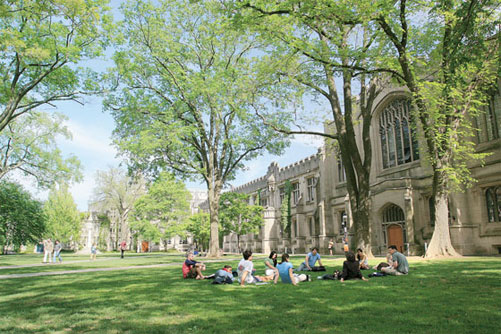OSHCstudents – The Medicare Benefits Schedule (MBS) is a list of health professional services that the Australian Government subsidizes. MBS items provide patient benefits for a wide range of health services including consultations, diagnostic tests and operations.

What is the MBS?
The benefits you receive from Medicare are based on a Schedule of fees for medical services set by the
Australian Government. The Medicare Benefits Schedule (MBS) lists a wide range of consultations,
procedures and tests, and the Schedule fee for each of these items(for example, an appointment with your
GP or blood tests to monitor your cholesterol level.)
The Schedule fee is the amount the Government considers appropriate for one of these services. Health
consumers can claim 100% of this fee as a rebate for general practice services and 85% of non-GP services
from Medicare when the services are provided out of hospital. For services provided in a private hospital
Medicare will rebate 75% of the Schedule fee. This doesn’t mean that the service provider (for example a
doctor, pathologist or physiotherapist) will not charge you more than the Schedule fee, so you will often
have to pay a ‘gap fee.’ Every Australian contributes to the health system through their income tax.
If you attend a public hospital you will not be charged for care and treatment or aftercare relating to your
public hospital treatment.
Medication is not generally covered under the MBS. The Pharmaceutical Benefits Scheme (the PBS) is the
system that the Government uses to provide subsidies for prescription medication.
Who decides what is on the MBS? How do we know if it is effective and good value for money?
Until 1 January 2010, there was no clear process for adding new items to the MBS. There was also no clear,
consistent system for identifying and removing items from the MBS when they were no longer considered
best practice or effective. There was no consistent and formal process in place to test or review items
already on the MBS, or new items coming onto it, to ensure they were doing what they were intended to
do and were safe and cost effective. Only three percent of items have been assessed for safety,
effectiveness and cost-effectiveness. As a result many MBS items have limited evidence proving their
safety and efficacy. The system for adding or removing items was not consistent or transparent.
The MBS provides benefits for:
• consultation fees for doctors, including specialists
• tests and examinations by doctors needed to treat illnesses, including X-rays and
pathology tests
• eye tests performed by optometrists
• most surgical and other therapeutic procedures performed by doctors
• some surgical procedures performed by approved dentists
• specified items under the Cleft Lip and Palate Scheme
• specified items for allied health services (ie chronic disease management items ,
better access to GPs, psychologists and psychiatrists through the MBS initiative
items, and items for children with pervasive developmental disorders)
OSHC & MBS
OSHC will help international students cover:
- 100% of the Medicare Benefits Schedule (MBS) Fee for medical services provided in hospital
- 100% of the Medicare Benefits Schedule (MBS) Fee for GP (general practitioner)
- For example X-rays and blood tests. OSHC will cover 85% of the Medicare Benefits Schedule (MBS) Fee. The benefit amount may vary depending on the type of medical service.
The MBS does not cover such things as:
• private patient hospital costs (for example, theatre fees or accommodation)
• dental examinations and treatment (except specified items introduced for allied
health services as part of the Enhanced Primary Care (EPC) program)
• ambulance services
• home nursing
• acupuncture (unless part of a doctor’s consultation)
• glasses and contact lenses
• hearing aids and other appliances
• the cost of prostheses (except External Breast Prostheses covered by the External
Breast Prostheses Reimbursement Program)
• medicines (The PBS is the system that provides subsidies for prescription medication)
• medical and hospital costs incurred overseas
• medical costs for which someone else is responsible (for example a compensation
insurer, an employer, a government or government authority)
• medical services which are not clinically necessary
• surgery solely for cosmetic reasons
• examinations for life insurance, superannuation or membership of a friendly society
• eye therapy
OSHCstudents







































